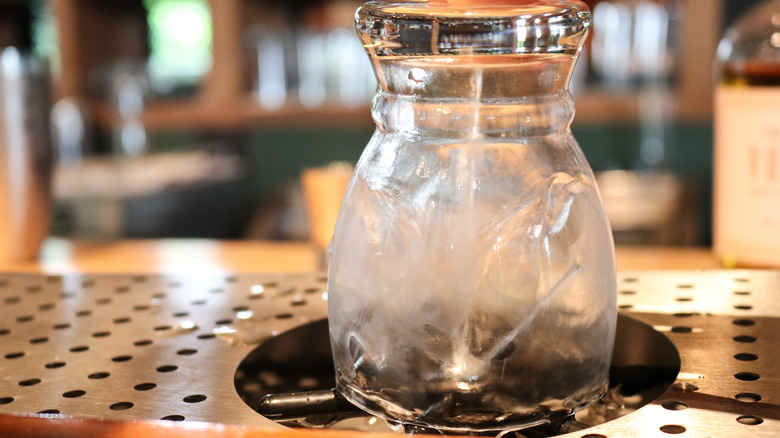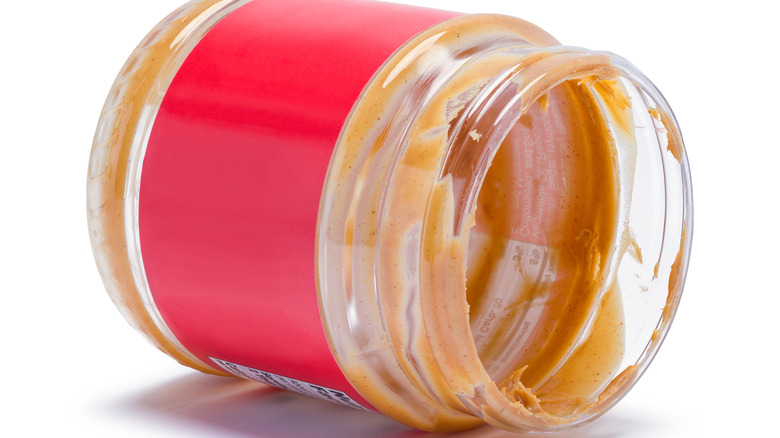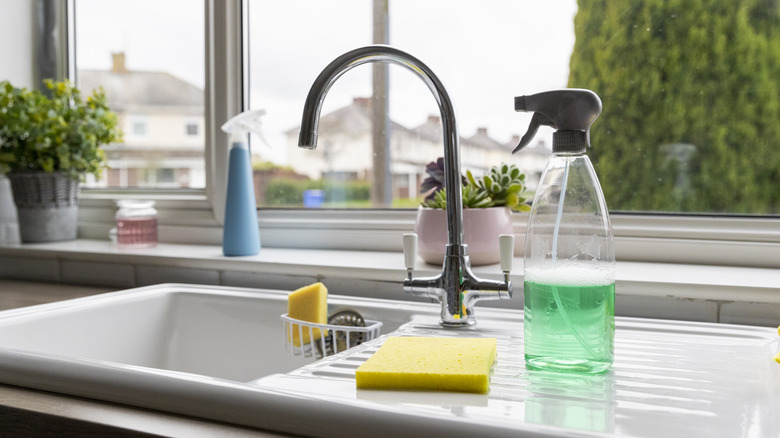Your Glass Rinser Cleans Much More Than Just Drinkware
Glass rinsers have long been the standard in many coffee shops, restaurant kitchens, bars, and the like for their ability to clean out mucky cups and bottles without all the added elbow grease. But, thanks to the emergence of residential models in recent years, the fancy cup cleaners are swiftly becoming less renowned for their prowess in commercial settings and are solidifying their status as at-home cleaning gadgets that may actually be worth all the hype.
Not only do these automatic washers cut through grime in drinkware, however; they also work wonders at rinsing out just about anything that will fit on them, from sticky peanut butter jars to dirty dip bowls to stained wine decanters.
For those not familiar with the convenient glass rinsers, they're essentially attachments that can be installed and attach to the majority of standard kitchen sinks. The device can be hooked up to either your hot or cold water supply line, although the former is recommended for hand-washing items. Once connected, it's capable of shooting up a steady stream of water, which can be used to easily clean out the debris of whatever has been placed down on it, with no tedious scrubbing or soaking required.
Glass rinsers clean sticky residue with ease
Thanks to TikTok's suggestions, it appears there are a ton of other ways to use this handy kitchen device. As it turns out, a spritz of lemon or lime juice isn't the only secret to easily cleaning your coffee pot — glass rinsers come in pretty handy for this purpose, too. The useful cleaning tool can effortlessly remove stuck-on coffee grinds in mugs and pots as well as other pesky residue that tends to stick to the bottoms of glasses, such as dried milkshake and smoothie remnants. But, beyond the obvious, you can use the glass rinser for so much more.
Clean out dirty baby bottles or the bottoms of hard-to-reach reusable water bottles, or quickly wash away sticky batter from measuring cups. You can even rinse out empty condiment jars, such as nut butter, jam, or mayonnaise containers, making recycling or reusing them that much easier.
Glass rinsers are especially great for cleaning anything that's not safe to go in the dishwasher, or items that aren't easily washed by hand. And, since the water shoots up into whatever you're cleaning, the best part is that you don't have to worry about it splashing back at you or the floor, circumventing any mess.
Make sure to clean the glass rinser, too
There's no doubt that ultra-functional glass rinsers are high-powered, grime-fighting, cleaning machines. But, they also need a regular rinsing just the same, especially if you really want them to go the distance and remain in tip-top working order. Since the countertop devices come into contact with a variety of liquids, the rinser should be cleaned regularly — sometimes as often as each day if that's how frequently it's being used.
To thoroughly wash your rinser, simply use a bit of warm, soapy water and a clean brush or rag to scrub it out. Splash on a little more warm water to ensure there aren't any lingering suds and then grab a clean glass to place over the device, running the rinser for about 15 to 20 seconds. This will help rinse away any remaining soap or gunk, so it's ready to tackle more dirty dishes, containers, and the like again.



